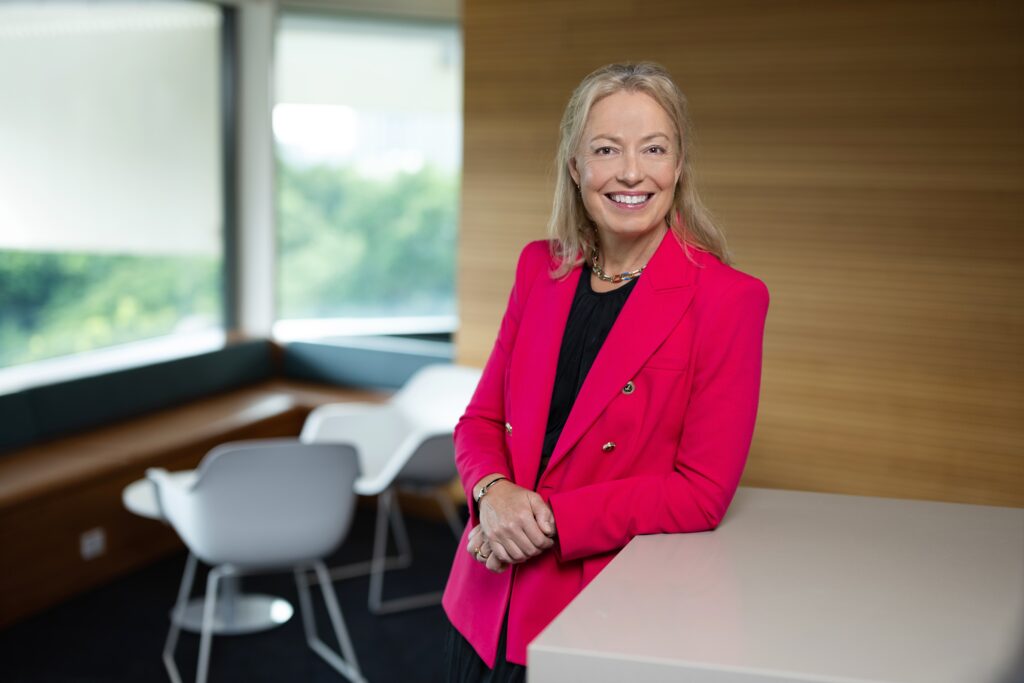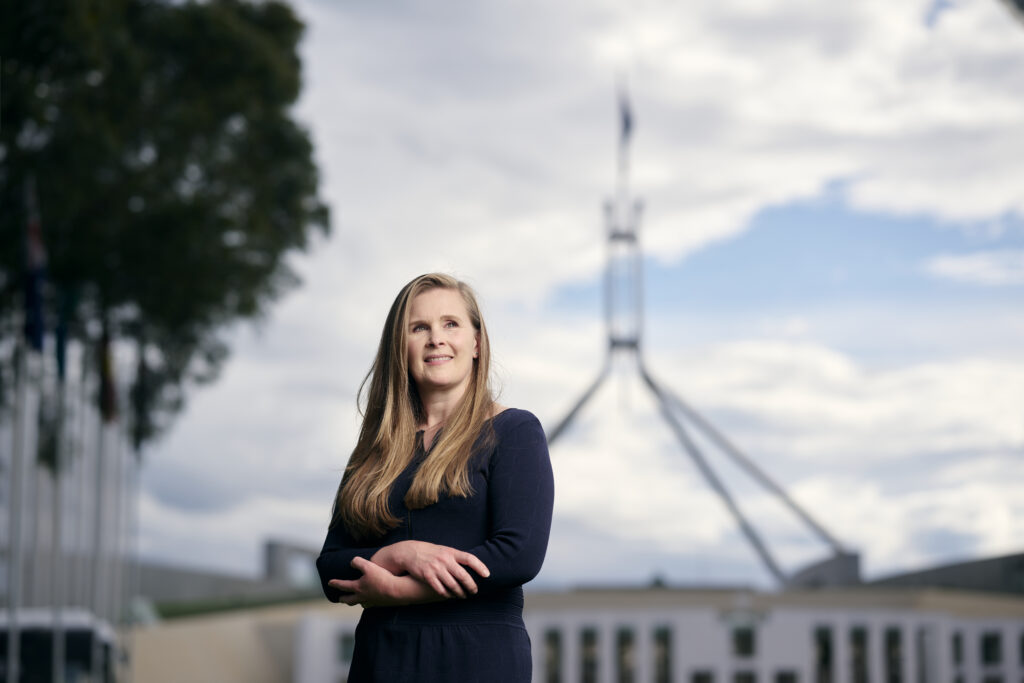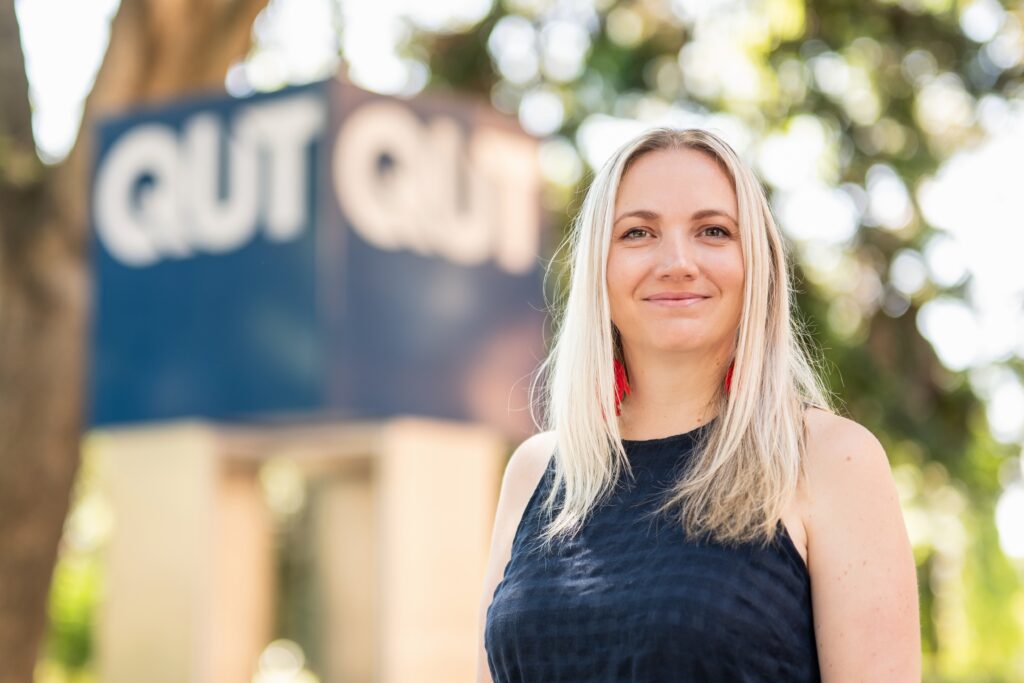Australia is undoubtedly making strides towards gender equality in leadership, with university enrolments for Masters of Business Administration (MBA) getting closer and closer to gender parity.
But progress is still nowhere near to where it should be.
There is a stark gender gap for workers in senior, managerial or leadership positions. According to the Workplace Gender Equality Agency (WGEA), women make up 51 per cent of the Australian workforce, however only 19.4 per cent of CEOs, and 32.5 per cent of key management positions.
The gender pay gap is further evidence that we are not doing nearly enough to support women’s career progression into leadership. A study in the US found women on average earn 71 per cent of what men earn in director roles, and 55 per cent of what men earn in VP roles. In Australia, according to WGEA, women in management roles can earn at least $100,000 less than their male counterparts.
Professor Sarah Kelly OAM is the head of the Queensland University of Technology (QUT) Graduate School of Business. She oversees the delivery of the university’s MBA programs and is passionate about getting more women involved in the postgraduate degree.

Currently, about 40 per cent of QUT’s MBA candidates are women, but Professor Kelly said that number is “still not good enough”.
“It’s on us to ensure we have diversity in our programs across gender in an effort to correct this inequality and support women to progress in their careers through education,” Professor Kelly told Women’s Agenda.
The QUT Business School is empowering women to expand their leadership potential through the MBA programs. Candidates can attend networking events, career workshops and international study tours throughout their studies.
Whilst it is important to reach gender parity in recruiting female candidates for the MBA at QUT, Professor Kelly said it is about more than that.
“This is about doing the right thing, walking the talk of our values as a school, as a program, which are about connection, inclusivity, accessibility to further education and therefore career progression,” she said.
“And the ripple effects of that are that we produce more diverse leaders, more diverse perspectives in decision-making and more productive and beneficial outcomes for society and organisations.”
Scholarships
There are a range of reasons why women want to study MBAs in Australia: to upskill, to progress in their career, or just out of interest.
But the average cost of an MBA program for students in Australia is over $60,000, according to MBA News. Some cost up to $100,000. As a result, many women feel priced out when it comes to considering undertaking an MBA or Executive MBA.
For Paula Manns, a public service director, and a single mum of two teenagers, it was always a lifelong dream of hers. In fact, ten years ago, she began studying for an MBA but gave it up when changes to her life and her work made it impossible to continue.

“Financially, I knew it was out of reach – but also, I wondered how would I manage going to university while working full time, while managing a family and a household?” she said.
The QUT Business School offers women like Paula the opportunity to apply for the Women in Leadership Excellence Scholarship, a scholarship offered in partnership with UN Women Australia.
It’s one of the many scholarship programs the university offers to support the future of women’s leadership in Australia. Prospective students can choose from scholarships tailored to female executive leaders, entrepreneurs, not-for-profit leaders and Indigenous leaders.
Paula was a recipient of the Women in Leadership Execellence scholarship, and would not be where she is today – feeling confident in herself as a leader and enthusiastic about her future – if it wasn’t for the QUT scholarship.
“The scholarship was an amazing opportunity for me. It enabled my dreams to come true, I thought I had more to offer and it has allowed me to see my full potential” Paula said.
“Also, the hybrid online-intensive structure of the program at QUT really worked for me. I was able to continue to work full time, but also manage family life… I was really supported to learn and grow personally by the people I was in the classes with, but also the lecturers.”
Paula said receiving the scholarship was a “big boost to my confidence” as she realised that people did believe in her and her potential. And while she learned new, practical skills for the next stage of her career, there was something that surprised her during the course of studying for her Executive MBA.
“The biggest thing I learned was about myself. And I didn’t really expect that going in to do an Executive MBA.”
Jacinta Rogers, program manager for intensive family support at Act for Kids, is a current candidate for an MBA at the QUT Business School. She is also a recipient of the Women in Leadership Excellence Scholarship.

“I’ve always had this passion about wanting to learn more in terms of leadership and management and organisational processes,” she said.
Having already attained a masters of social work, with years of experience working in early intervention, child protection, government and grassroots spaces, Jacinta found she was lacking skills to progress in her career, including financial literacy, leadership skills, and strategic thinking.
“I wouldn’t be able to do my MBA if it wasn’t for the scholarship,” she said.
“I’m a single mother with two kids working full time and studying full time, and QUT has absolutely made that possible.”
And her advice for women considering taking on studies for an MBA?
“Have a crack,” she said.
Explore QUT’s MBA and Executive MBA, and discover scholarship support available, here.

